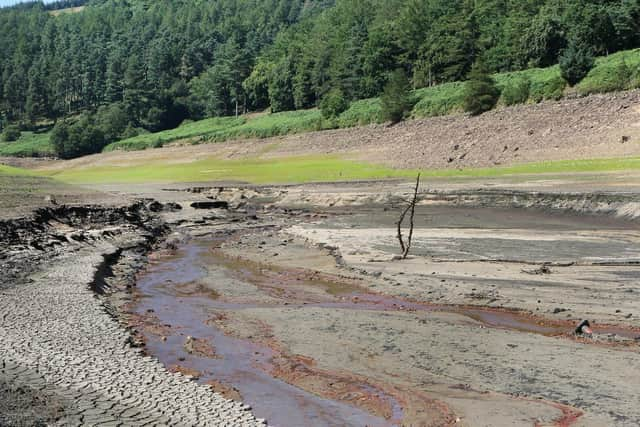Drought officially declared in Leeds by Environment Agency after Yorkshire sees 'extreme weather conditions'
and live on Freeview channel 276
Yorkshire was moved to “drought status” today (Tuesday, August 16), the Environment Agency confirmed.
It comes after several other regions across England that delcared droughts last week.


Advertisement
Hide AdAdvertisement
Hide AdThe move follows a heatwave that saw record-breaking temperatures during a July heatwave, reaching up to 39C in Leeds.
And over the last week, another heatwave has seen temperatures go beyond 30C.
The most recent led to a hosepipe ban being issued by Yorkshire Water.
The prolonged, dry weather this year has led to “exceptionally low river flows and reservoir levels falling across much of England”, the Environment Agency said.
Advertisement
Hide AdAdvertisement
Hide AdHigh temperatures, including last week’s heatwave, continue to add additional pressures on the water environment and wildlife, it added.
Victoria Slingsby, environment planning and engagement manager for the Environment Agency in Yorkshire, said: “The high temperatures we are experiencing have exacerbated pressures on wildlife and our water environment in Yorkshire.
"These extreme weather conditions become more likely with climate change.
“We are experiencing some much-needed rain this week, but it will not be enough to correct weeks of dry weather, and it will take more prolonged rainfall to wet up soils and replenish rivers, reservoirs and groundwater levels.”
Advertisement
Hide AdAdvertisement
Hide AdThe triggers used to confirm the move to drought status for Yorkshire include river flows, groundwater and reservoir levels, rainfall totals and the dryness of soils.
It also takes into account the impacts dry weather has on ‘abstractors’ (including farmers) and the environment, and is determined by the Environment Agency at a local level.
The last drought in Yorkshire was in autumn 2018.
